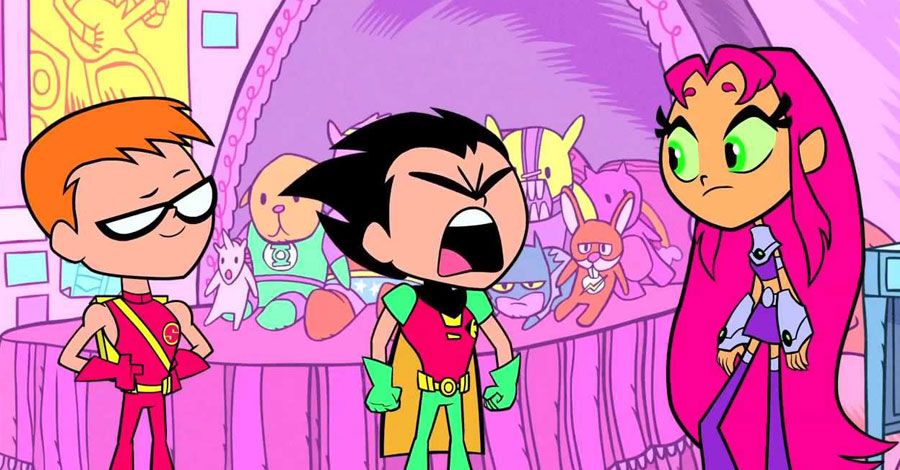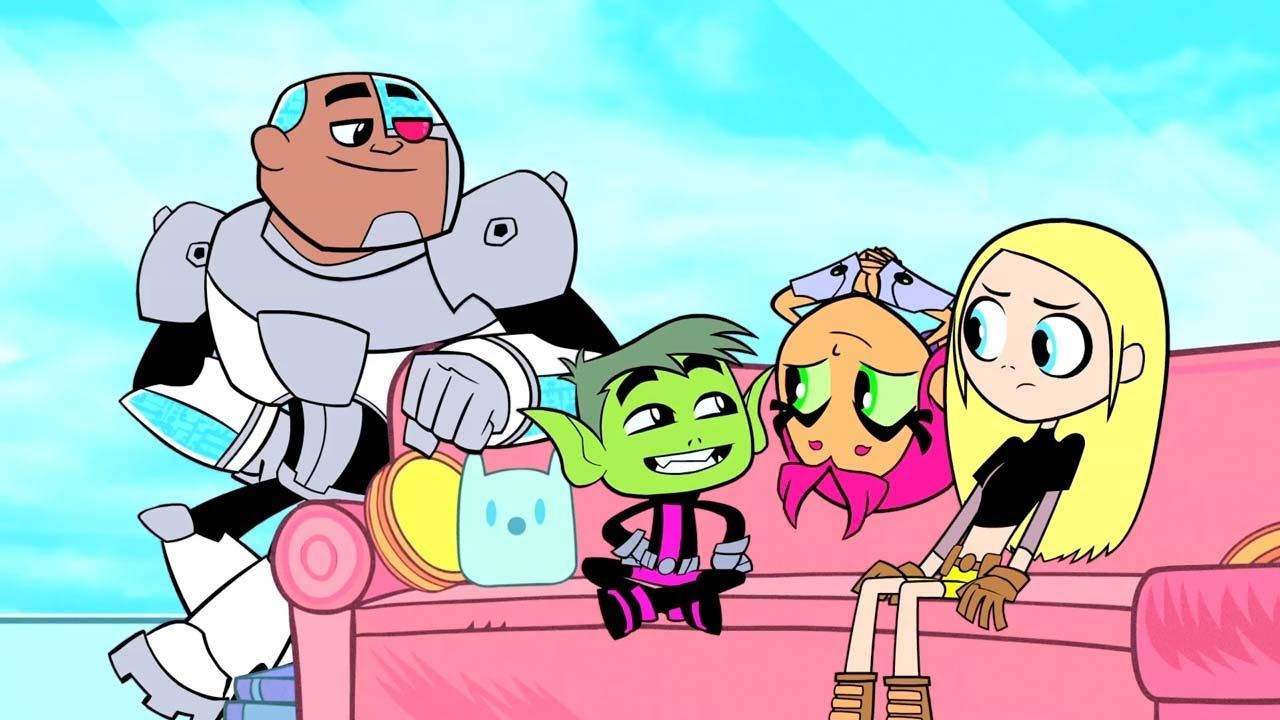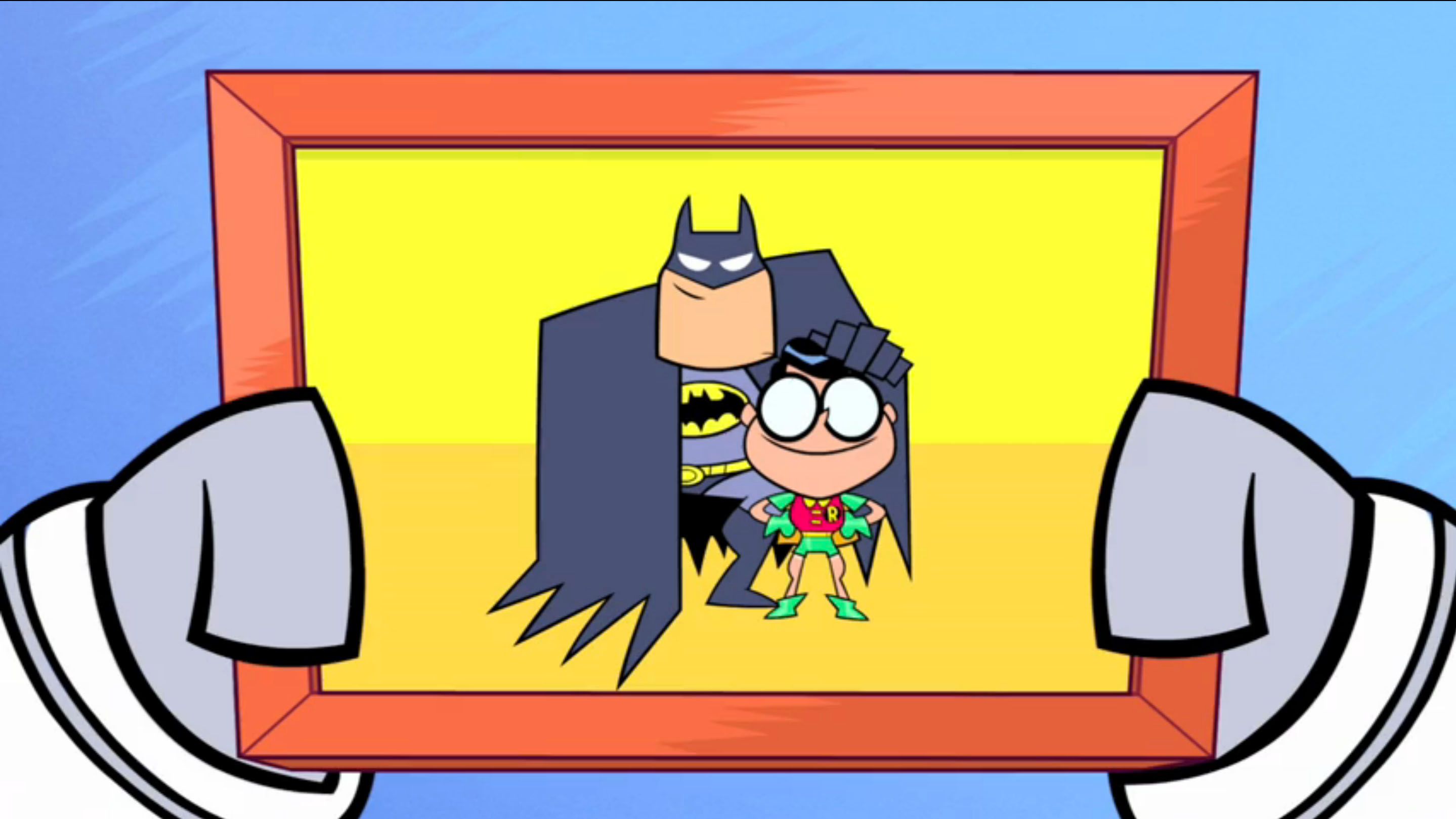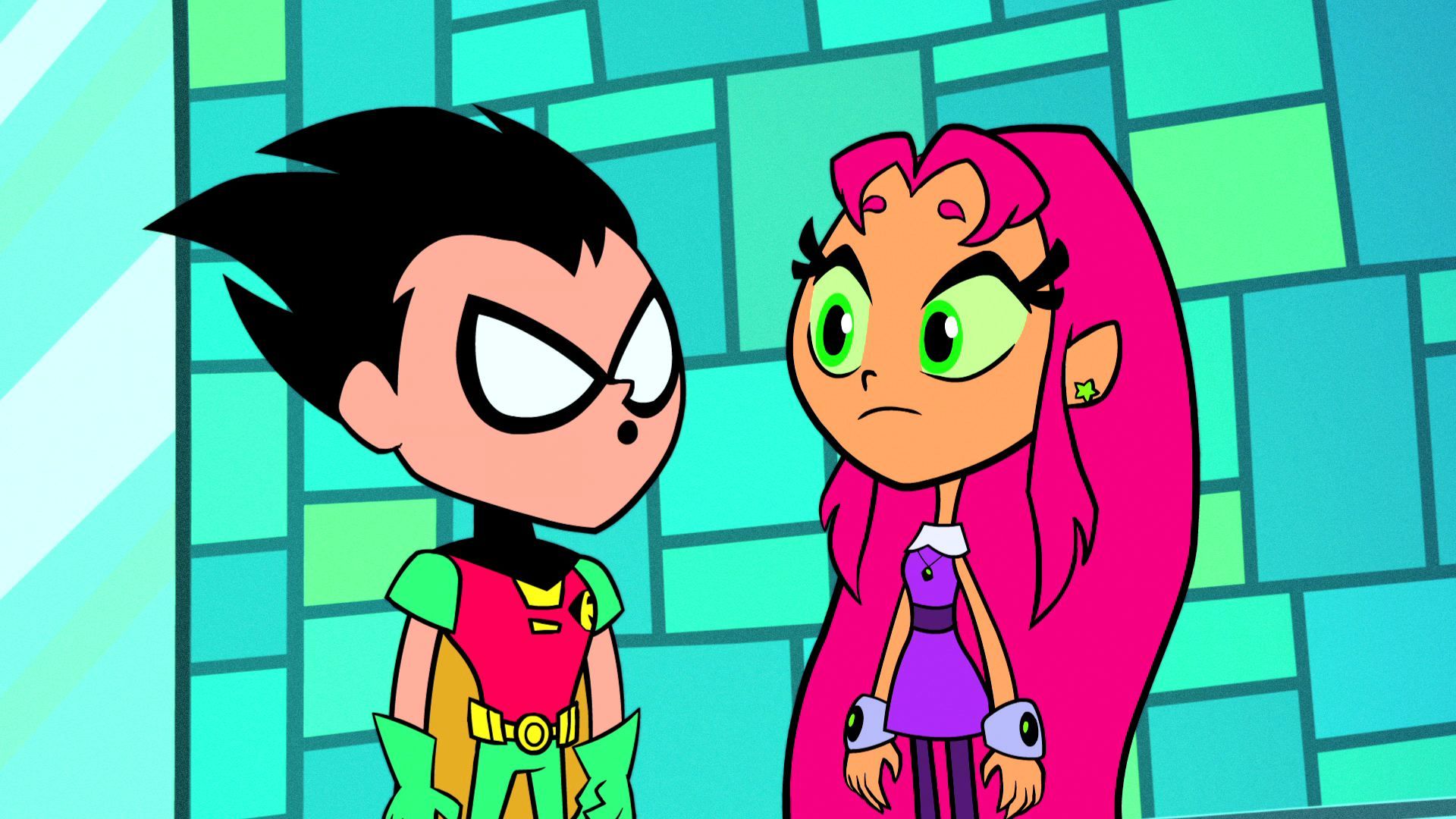Anyone who's been to a comic convention knows they can be a little crazy, but WonderCon is sort of delightfully low key. Although the turnout is great and the opportunities for fans to see neat stuff is even greater, there seems to be little of the pressure, the urgency, to get from one place to another or check out certain stuff than at its larger counterparts. But if you're interviewing Aaron Horvath, all of the intensity of those other cons crashes down on you, especially when he's been handed a sandwich and wants to get rid of it.
Producer Michael Jelenic Explains What Makes "Teen Titans Go!"
Following a panel for "Teen Titans Go!," the popular Cartoon Network animated series for which he writes, Horvath spoke briefly with Comic Book Resources about the evolution of the show, and the process of keeping himself and the creative team engaged and excited. As he sat down, Horvath presented an unexpected challenge: ask good questions, and get that damn sandwich.
Aaron Horvath: I got a sandwich. If you ask me a good question, you get it.
CBR News: Well, now the pressure's on.
Given how "Teen Titans Go!" evolved from the previous series, at what point did you feel like you guys really hit your sort of wheelhouse with the "new" Teen Titans?
Well, I got into it pretty much immediately. The reason they asked me to work on the show is because I didn't work on the original series, so I didn't bring any thing to it that was going to be too referential -- I wasn't going to make jokes about things that happen in an episode that maybe this new audience that we're going for hadn't seen. But in terms of when we hit our stride creatively I think [it was] the meatball party episode. That was pretty early in the season. It was pretty ridiculous -- we kind of had a straight-forward story about Raven with a crack in her tooth, and it was something about a demon. But the way the episode was written was very, I don't know -- it was playing out in a way that just wasn't interesting to us at all, and I had this stupid idea. I had a list of pitches for the show. Some of them were real ideas, and then other ones were fake ideas that were just to make Michael [Jelenic], my producing partner, and Jeff Prezenkowski, another producer on the show, just to make them laugh. One of them was, the Titans all have a meatball party where everybody eats meatballs -- and that was just to make them crack up. That's the dumbest thing I've ever heard.
Then I said it in front of Sam Register, who runs Warner Bros., and I kept saying it, like, "Guys, you know what we got to do. We got to have a meatball party." So I say this is in front of Sam, and he's like, "What's a meatball party?" I was just like, "You never heard of a meatball party before, bro?" So then, in a day and a half we wrote this script about the Titans having a meatball party and it was the dumbest thing that I had ever thought of. I was like, I can't believe we're actually doing this. To take that and write it in this episode, it was a lot of fun. And then the storyboards team did a great job, and they made it even more fun! They found really fun music to play in it, and this was kind of sort of like a perfect episode! It had a lot of really absurd comedy in it, and then there's a little piece of action in there that's just remarkably well done. So that one, I'd say, was the first one where I felt like really like we had found something unique to play with.
Since then, where have you discovered the boundaries of your sort of storytelling and meta-storytelling to be? It feels like the audience for the show is so broad that you kind of can't go too far, but at the same time there has to be, I assume, some sort of limitation.
Well, I'd say we do keep a lot of the shows broad. I mean they're weird, but they're also broad -- you don't need to know a lot about the Teen Titans to get a lot of the jokes, and we do that on purpose. But then there's a lot of smaller stuff, nods to the fans of the original show who we hope now are enjoying this show. A lot of them come in the form of Easter eggs in the background and character relationship stuff that we like to carry over from the first series. That's stuff that the fans had a lot of fun with. I'm sure the creative team on the original Teen Titans series had fun with it too, but I think they probably never wanted Robin and Starfire to get together or Beast Boy and Raven for any of these kind of [relationships]. I think they kind of danced around it and they probably had fun, they probably enjoyed the fact that fans were latching onto these characters and matching them up and stuff. But for us, it's so many years later and these character relationships have survived the test of time. Like, there's fans that [say] Beast Boy and Raven are meant to be, all these years later. That's a lot of fun for us, and fits very well with the tone of the show, based on the idea that it's a character-driven comedy show. It's like okay, there's two characters who have this relationship, and we can have a lot fun with it.
In general, what do you feel like you guys have integrated from the fan reactions to the show? Are you reacting to the popularity of certain characters, and how careful do you have to be to not overdo things?
I don't know. I think there's probably only one episode -- and again, aside from kind of small things are Easter eggs that have been inserted in episodes -- there's probably only one episode that's pretty meta that's kind of a response to a lot of criticisms that have been leveled at our show. It's this "Young Justice" crossover episode where they're going to show up and kind of chastise our Titans for being terrible superheroes. "You're giving all these superheroes a bad name, and you need to get more serious!" And that's the episode where they want to get more serious.
But overall, I think we've like managed to keep ourselves in this absurd little bubble of dumb jokes and not [be too affected]. We do get on Tumblr and everything, and we like to see what fans are reacting to and all that, but I don't want to fall into the trap of thinking the Internet represents everybody. There might be small things here and there that we respond to, but they're never broad. Episode ideas generally just come from just trying to make each other laugh more than anything. We're in season 2 now, and I think we've written almost 80 episodes, so at this point, it really is just like we've got to keep each other interested. We're telling a lot of stories and each one has to be funny so we definitely try to keep each other laughing.
How easy is that? Now that you guys have so firmly defined the characters, can you just put them in a room and know what they'll do, or does it take a lot of imagination to keep yourself sort of --
-- entertained and creative. Yeah, it definitely does. The characters are locked, for us. Like, I know what Beast Boy would say; that's not the hard part. The hard part is continuing our tradition of absurd stories that don't resolve in a way that the audience would expect. The episode we showed today kind of does, but it goes to an absurd place. There's always got to be something in every episode that feels to us like it's fresh or hasn't been done before. And I know that's kind of a ridiculous thing to say, but that's kind of what we're striving for is just try to do a joke that hasn't been told or whatever. I always want it to feel fresh and unique and funny so that's our challenge.
The Robot Chicken guys have told me how they felt completely unbeholden to any other mythology then their own. How much is your own mythology sustaining the show, as opposed to having to think about drawing on larger mythology or anything else for ideas?
It's here and there. I'd say we've started to feed on ourselves at this point. We make it a point to not do continuity -- there's no continuity in the show. But there are certain things that we like. We've introduced some really dumb side characters, like a boom box, and there's a talking staff, and they tend to show up more throughout the first season. Early in season 2, they got almost their own episode where they're the heroes and they're actually really good at their jobs. They're pretty badass, as we find out. But it's mostly us keeping things fresh -- I lost my train of thought. What was the question?
This was the sandwich question.
Sorry. Well, it was a good question. You could have a sandwich if you're hungry.
I'm okay, but thank you. I appreciate it.
I'll keep it for somebody who actually likes sandwiches.
I'm a sandwich bigot and I hate them, so no. But thank you so much for your time. I appreciate it.
Sure, yeah. Thanks for asking. Thanks for asking the questions. And listen, it's not off the table yet. [Picks up the sandwich] I mean, it's literally off the table, but if you want the sandwich, it's still within your grasp.
What kind of sandwich is it?
It's a roast beef and it's got mayo and mustard. You can't take them both -- one or the other, or none.
I'm good.
Just don't say no. Just think about it
I will. I will. Thank you.




